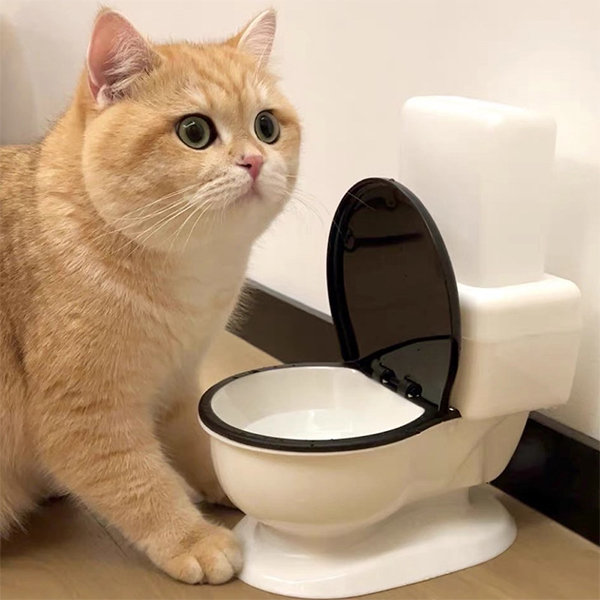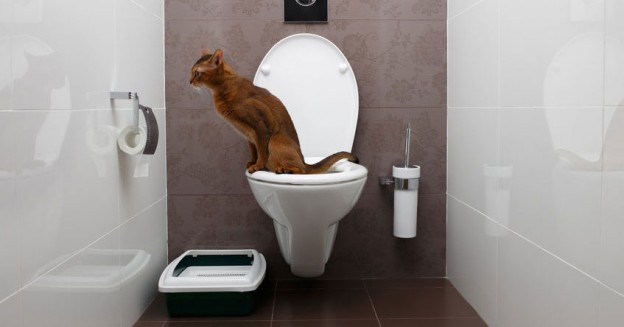The Consequences of Flushing Cat Poop Down Your Toilet - Protect Your Plumbing
The Consequences of Flushing Cat Poop Down Your Toilet - Protect Your Plumbing
Blog Article
The article author is making a few good points relating to Don’t flush cat feces down the toilet as a whole in the content in the next paragraphs.

Introduction
As feline proprietors, it's essential to bear in mind how we throw away our feline friends' waste. While it may seem convenient to flush cat poop down the toilet, this practice can have harmful repercussions for both the setting and human wellness.
Alternatives to Flushing
The good news is, there are more secure and extra liable methods to get rid of cat poop. Consider the adhering to alternatives:
1. Scoop and Dispose in Trash
One of the most typical method of dealing with pet cat poop is to scoop it right into a naturally degradable bag and throw it in the trash. Make certain to use a committed trash inside story and deal with the waste without delay.
2. Use Biodegradable Litter
Choose eco-friendly cat litter made from materials such as corn or wheat. These clutters are eco-friendly and can be safely thrown away in the trash.
3. Bury in the Yard
If you have a lawn, think about hiding pet cat waste in a marked location far from veggie yards and water resources. Make certain to dig deep adequate to stop contamination of groundwater.
4. Install a Pet Waste Disposal System
Invest in an animal waste disposal system particularly created for feline waste. These systems utilize enzymes to break down the waste, lowering smell and environmental effect.
Health Risks
Along with environmental problems, purging cat waste can also position health threats to human beings. Feline feces may have Toxoplasma gondii, a bloodsucker that can cause toxoplasmosis-- a possibly serious illness, specifically for expecting females and individuals with damaged immune systems.
Ecological Impact
Flushing feline poop introduces damaging virus and parasites right into the supply of water, presenting a significant danger to marine communities. These pollutants can adversely impact aquatic life and concession water top quality.
Conclusion
Accountable family pet possession prolongs past giving food and sanctuary-- it additionally entails correct waste administration. By refraining from flushing cat poop down the bathroom and selecting alternative disposal methods, we can minimize our environmental impact and shield human wellness.
Why Can’t I Flush Cat Poop?
It Spreads a Parasite
Cats are frequently infected with a parasite called toxoplasma gondii. The parasite causes an infection called toxoplasmosis. It is usually harmless to cats. The parasite only uses cat poop as a host for its eggs. Otherwise, the cat’s immune system usually keeps the infection at low enough levels to maintain its own health. But it does not stop the develop of eggs. These eggs are tiny and surprisingly tough. They may survive for a year before they begin to grow. But that’s the problem.
Our wastewater system is not designed to deal with toxoplasmosis eggs. Instead, most eggs will flush from your toilet into sewers and wastewater management plants. After the sewage is treated for many other harmful things in it, it is typically released into local rivers, lakes, or oceans. Here, the toxoplasmosis eggs can find new hosts, including starfish, crabs, otters, and many other wildlife. For many, this is a significant risk to their health. Toxoplasmosis can also end up infecting water sources that are important for agriculture, which means our deer, pigs, and sheep can get infected too.
Is There Risk to Humans?
There can be a risk to human life from flushing cat poop down the toilet. If you do so, the parasites from your cat’s poop can end up in shellfish, game animals, or livestock. If this meat is then served raw or undercooked, the people who eat it can get sick.
In fact, according to the CDC, 40 million people in the United States are infected with toxoplasma gondii. They get it from exposure to infected seafood, or from some kind of cat poop contamination, like drinking from a stream that is contaminated or touching anything that has come into contact with cat poop. That includes just cleaning a cat litter box.
Most people who get infected with these parasites will not develop any symptoms. However, for pregnant women or for those with compromised immune systems, the parasite can cause severe health problems.
How to Handle Cat Poop
The best way to handle cat poop is actually to clean the box more often. The eggs that the parasite sheds will not become active until one to five days after the cat poops. That means that if you clean daily, you’re much less likely to come into direct contact with infectious eggs.
That said, always dispose of cat poop in the garbage and not down the toilet. Wash your hands before and after you clean the litter box, and bring the bag of poop right outside to your garbage bins.
https://trenchlesssolutionsusa.com/why-cant-i-flush-cat-poop/

As a serious person who reads on How to Dispose of Cat Poop and Litter Without Plastic Bags, I think sharing that piece of content was a smart idea. So long as you liked our blog posting please be sure to pass it around. I value reading our article about Can You Flush Cat Poop Down The Toilet?.
Call Today Report this page